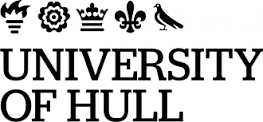 Menu
Menu
Published: 11 May 2022 1,100 views
Worldwide and in Europe, there is a huge expansion of offshore wind, however to date little thought has been given to “what happens when we no longer need the foundations?”. Hollow steel piles (monopiles) are generally the foundation type of choice for offshore renewable energy in relatively shallow water. Their future cost-effective full removal has clear benefits and is an obvious focal point for research at present. The removal of piles can fall into two classifications i.e. “self-removal”, and removal by axial pull using standard craneage, where in the latter case significant reduction of extraction loads is required to make this a practical proposition. The term “self-removal” refers to the use of the foundation system itself without the need for heavy lifting equipment (over and above that associated with lifting the self-weight of the foundation). Three techniques appear viable under this classification: overpressure, vibration and rotation [1,2]. The first involves pressurising the void at the top of the monopile to produce an upwards traction; this is a technique already used for suction caissons. Vibration and rotation are techniques which use the movements of the pile to reduce the strength of the surrounding soils in which the pile is embedded. While some exploratory work has been carried out by contractors to date, none of these techniques have yet to be studied in detail at the scale of a typical offshore monopile.
The aim of this project is to develop computational models of these removal processes, to understand their effectiveness in different soil conditions and to enable prototype and full scale take up to be developed.
It will allow cost-effective parametric analysis and virtual prototyping prior to expensive demonstration and risk adverse deployment. The nature of the study through computational techniques also allows not only the extraction method to be optimised but also the geometry of the piles for future designs to aid extraction whilst maintaining in-service requirements. One key objective on the way to the full model will be validation against physical modelling and field data.
For the PhD student, the scientific novelty will comprise: development of new computational techniques of much wider applicability to problems in civil and mechanical engineering; the first parametric study of monopile removal techniques and the derivation of initial guidelines for removal methods for industry.
This PhD scholarship is offered by the Aura Centre for Doctoral Training in Offshore Wind Energy and the Environment; a partnership between the Universities of Durham, Hull, Newcastle and Sheffield. The successful applicant will undertake a PG-Dip training year at the University of Hull before completing their PhD research at Durham University.
The University of Hull was founded in 1927 – originally as University College Hull. The foundation stone was laid the following year by the Duke of York (later King George VI, of The King's Speech fame) and we opened for business with 39 students and 14 ‘one-man’ departments. We’ve come a long way since then. The University now has more than 16,000 students and around 2,500 employees, including more than 1,000 academic staff.... continue reading

| Application Deadline | 06 Jun 2022 |
| Country to study | United Kingdom |
| School to study | University of Hull |
| Type | PhD |
| Sponsor | University of Hull |
| Gender | Men and Women |
The full-time Aura CDT PhD scholarship includes fees and maintenance (£16,062 per annum, 2022/23 rate) for four years, depending on satisfactory progress.
To be eligible, the If you have received a First-class Honours degree or a 2:1 Honours degree and a Masters (or the international equivalents) in Engineering, Earth Science, Mathematics, Physics, with an interest in computational methods, we would like to hear from you.
Applications in this current round of recruitment to the Aura CDT are open solely to Home students. Applications are made via the University of Hull admissions system. If you have not applied with the University of Hull before, you will need to set up an account to enable you to track the progress of your application and upload supporting documents.
Apply for Aura CDT Innovative Decommissioning for Offshore Foundation Systems:
With your application, you need to upload copies of the following supporting evidence:
The Aura Centre for Doctoral Training is committed to generating a diverse and inclusive training programme. As part of our inclusive practices, the Centre adopts a process of assessing applications purely based on skills and attributes and does not consider any personal details. As such we ask applicants to remove any personal details from the Supplementary Form which is used by the Panel to assess and select applicants for interview. The form asks for details of your education, training and employment history as well as some specific questions about your motivations and research experience and interests. It is very important that you do not include any personally identifying information.
Completing the form
Applicants must: